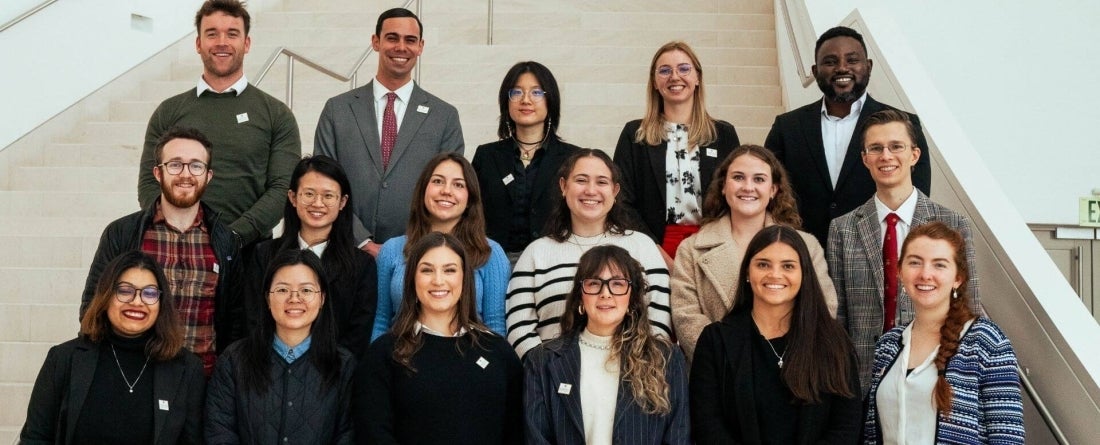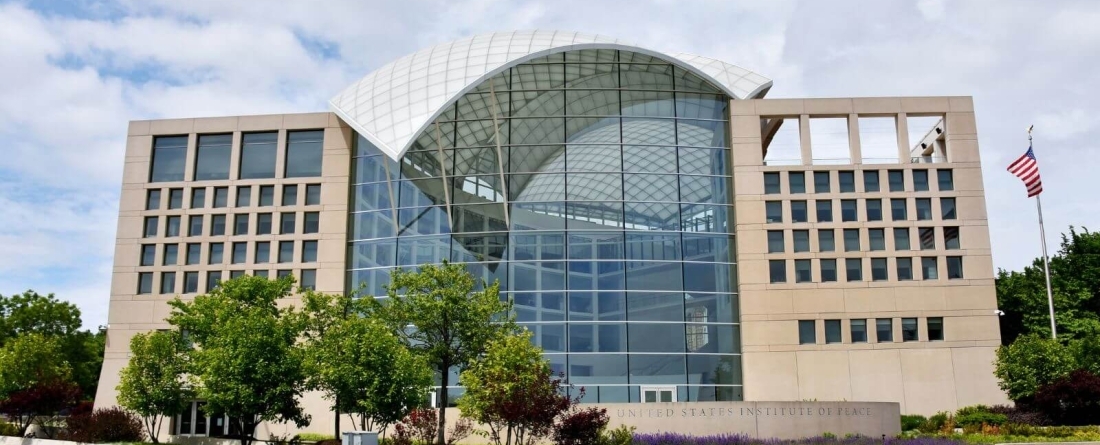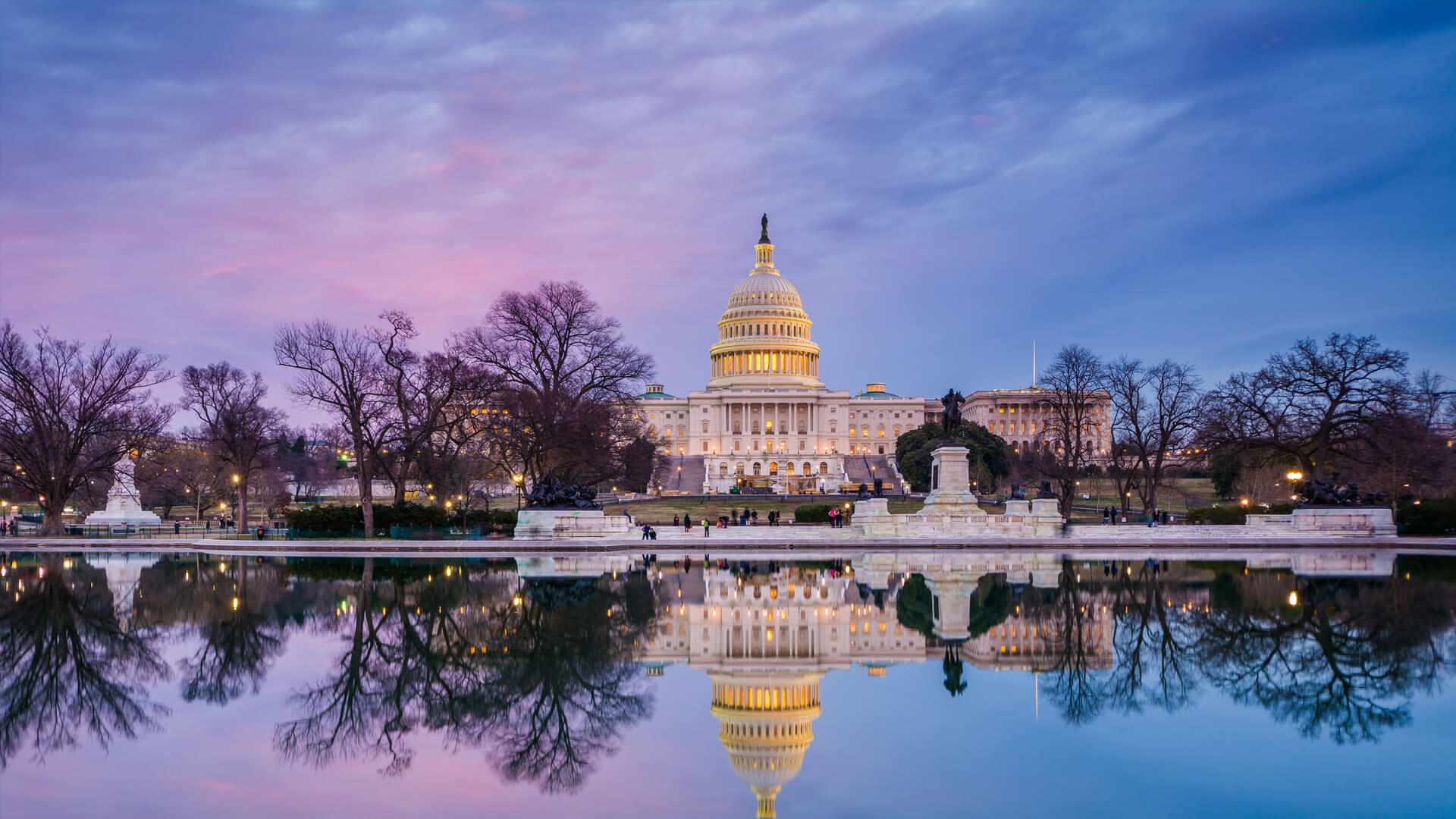
As global tensions persist, the School of Public Policy remains committed to fostering informed discussions of national and international significance. Recently, a group of policy graduate students visited the United States Institute of Peace (USIP), where they witnessed firsthand how diplomacy, conflict resolution and policy decisions shape international stability and real-world outcomes.
Led by Norman and Florence Brody Family Foundation Public Policy Forum Professor Elizabeth Duke, the visit was made possible through USIP Program Officer, SPP alum and former Brody Scholar Samantha Shimer. Recognizing the value of exposure to policy in action, Shimer arranged the visit for students focusing on leadership in public service, ensuring they could learn about USIP’s work in preventing, mitigating and resolving violent conflict worldwide.
Graduate student and current Brody Scholar Javier De Leon reflected on the experience, emphasizing the substance and setting of the visit. “It was a wonderful and truly unique opportunity for us to learn about the critical role that the U.S. Institute of Peace has in advancing peacebuilding efforts globally,” he shared. “The icing on the cake was the guided tour that provided insights on the design of their stunning building.”
During their visit, students met with Jennifer Staats, director of the East Asia and Pacific Programs at USIP, whose insights provided an in-depth look into conflict mediation and peacebuilding efforts across the region. MPP student Rene Zeevat highlighted the impact of the discussion saying, “Dr. Staats’ experience gave me a better understanding of the critical work USIP does to stabilize conflict zones. Her insights reinforced the importance of its efforts in fostering global stability.”
Students also reflected on how the institute’s approach to peacebuilding incorporates diverse perspectives. “USIP has evolved their nonpartisan work to include essential community voices and members,” added graduate student Kaela Werchniak, who attended the visit. “Including communities in the peacemaking process is essential to understanding conflict and moving towards sustainable peaceful solutions.”
Students gained exposure to USIP’s history, global initiatives, bipartisan collaborations and the evolving nature of peacemaking versus peacekeeping. The visit included an introduction to USIP’s mission, a briefing with Staats and a moderated Q&A session, providing students with an opportunity to connect theoretical policy discussions with real-world diplomatic applications.




